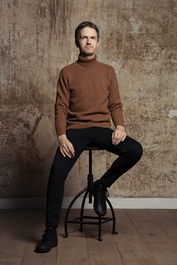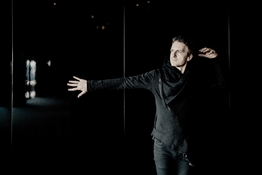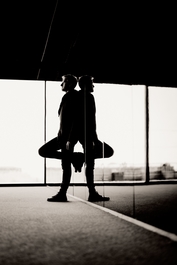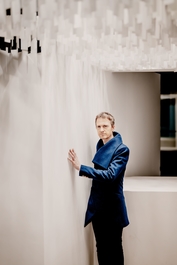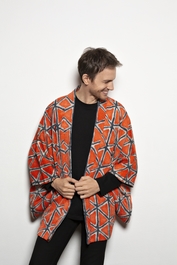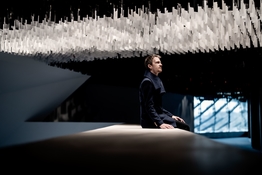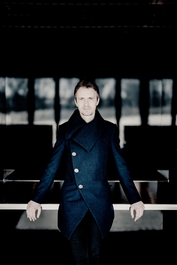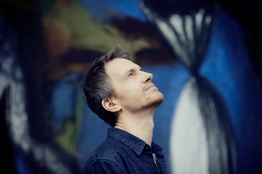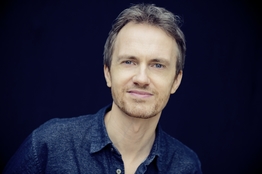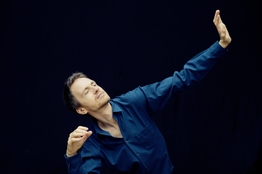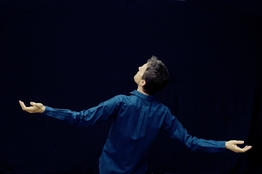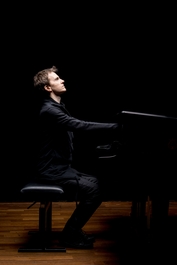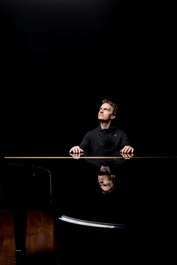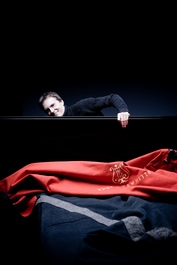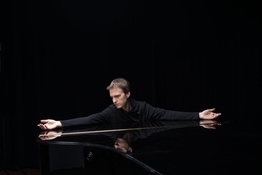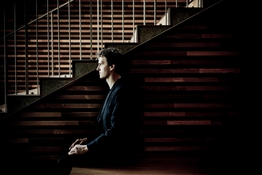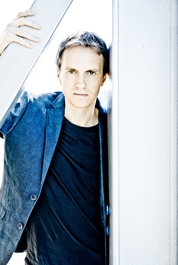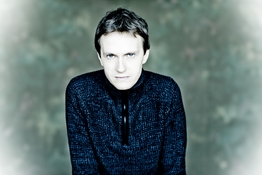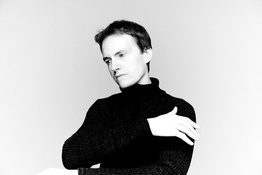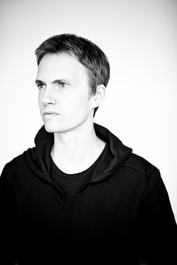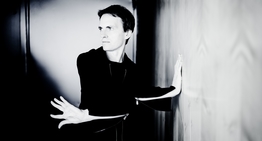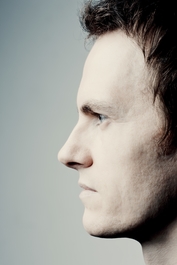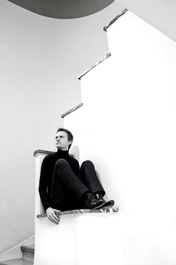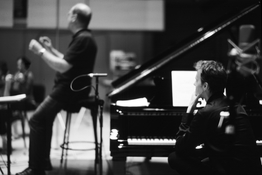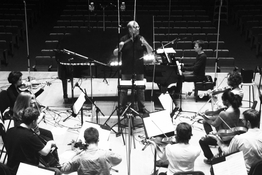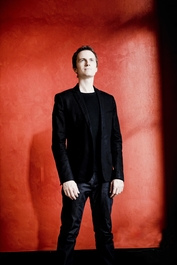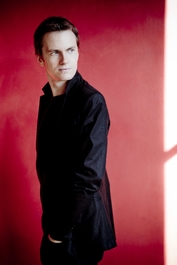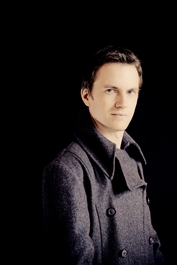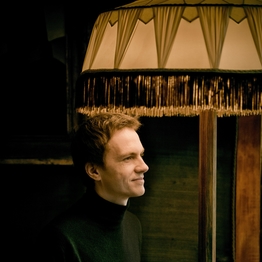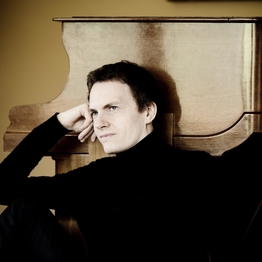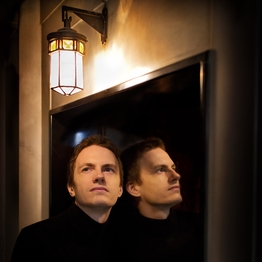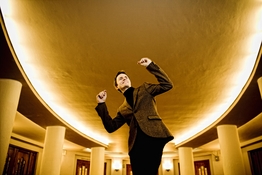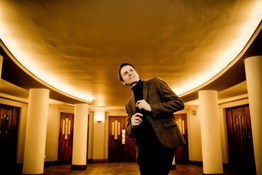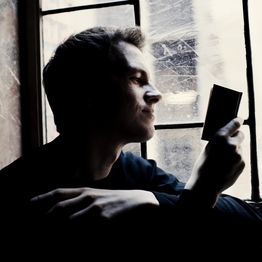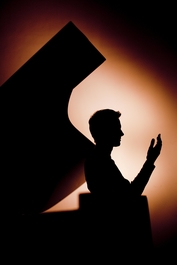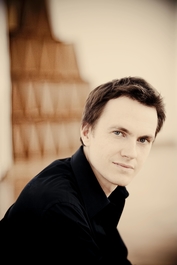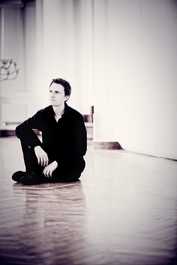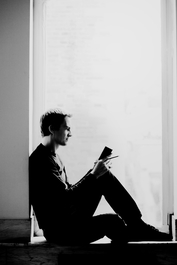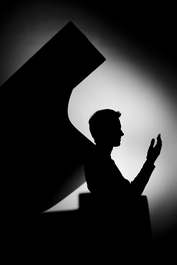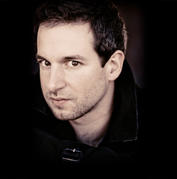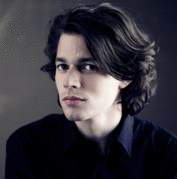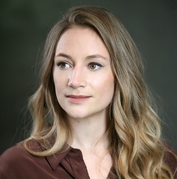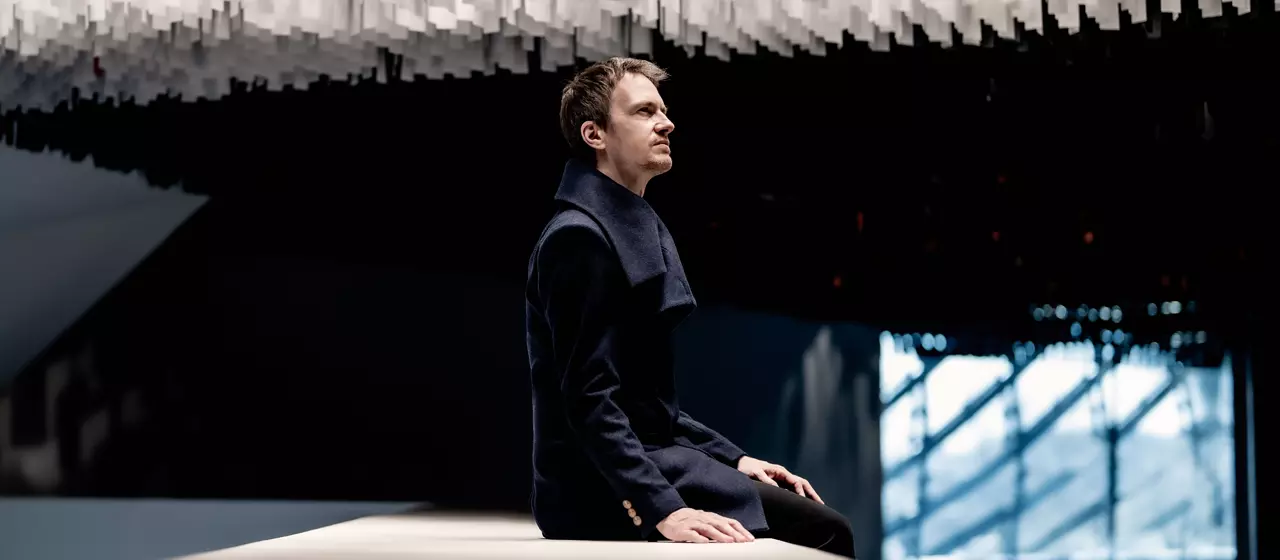
Alexandre Tharaud
News
Cinema
Alexandre Tharaud’s relationship with film music runs deep – it also ranges wide. On his double album CINEMA the French pianist delves into 50 celebrated film scores by composers from France, Italy, the USA, Japan, Poland, Romania and Lebanon – 19 in all. Among them are Michel Legrand, John Williams, Ennio Morricone, Francis Lai, Marvin Hamlisch, Nino Rota and Philip Glass. As Tharaud says: “This album pays tribute to them with a selection of pieces for piano and orchestra and for piano solo, most in their original versions, creating a sound-world every bit as thrilling without the motion picture.” The movie magic is reinforced by Tharaud’s starry partners on the album: Antonio Pappano conducts the Orchestra dell’Accademia Nazionale di Santa Cecilia, and making guest appearances are singers Vanessa Paradis, Camélia Jordana and Sabine Devieilhe, clarinettist Michel Portal and vioinist Nemanja Radulović.
Spanning more than six decades of movie history, the memorable titles include Les Choses de la Vie, Le Mépris, Les Demoiselles de Rochefort, Diva, Le fabuleux destin d’Amélie Poulain (Amélie), Cinema Paradiso, Otto e mezzo (8½), Il Gattopardo, E.T., The Thomas Crown Affair, The Way We Were, LA LA LAND, Schindler’s List, The Godfather, Star Wars, The Hours and High Heels.
“The origins of this recording go back a very long way,” says Alexandre Tharaud. “As a child I was lazy and had acquired the knack of breezing through my piano studies. The thing I loved most was improvising, and from the age of five I used to play back the tunes I heard around me and which I enjoyed, particularly the film music I would hear on television at my grandparents’ home. These melodies stirred deep emotions within me … The other catalyst for CINEMA was meeting Michel Legrand. We were working on a concerto project together and he sent me several scores, including the Yentl medley, which I premiered in Japan …”
The early years of Tharaud’s life as a professional musician set an unconventional precedent for his special and authentic connection with film music. “When I was at the Conservatoire, I saw myself becoming a session pianist. The recording process held a huge fascination for me and I was already envisaging my future albums. While waiting for that to happen, I performed live accompaniments for plenty of silent films throughout my youth. I adored doing this as it allowed me to compose and improvise, but it was also an excellent training, having to play alone and in the dark. I learned how to come up with music that didn’t intrude, since in silent films you have to play the whole time while ensuring that the audience doesn’t notice you’re there. You also have to exaggerate certain sequences, to make a character more or less likeable, as well as to make the audience laugh or make them cry ... I used to go home feeling that I’d served as accompanist to so many ghosts. It was this experience that enabled me to gain a better understanding of what film music really is.”
Alexandre Tharaud announces his Erato album dedicated to Schubert
While this is the first Erato album that Alexandre Tharaud has dedicated to the music of Schubert, the composer already features in the French pianist’s extensive and diverse discography. In 2012, Tharaud appeared in Michael Haneke’s film Amour, which won both the Palme d’Or at Cannes and the Academy Award for Best Foreign Language Film, and on the soundtrack album he performs music by Schubert, Beethoven and Bach.
Amour featured two of Schubert’s four Impromptus D 899 (op 90), written in 1827, the year before Schubert’s death at the age of just 31. Tharaud’s new Schubert album programmes all four of the D 899 Impromptus beside the six Moments musicaux, first published in 1828, and Tharaud’s own piano transcription of four excerpts from the stage music for Rosamunde, a play by Helmina von Chézy that was staged in 1823.
When Tharaud performed the Impromptus at London’s Wigmore Hall in 2014, The Guardian wrote: “Tharaud closed with Schubert's Four Impromptus D899, which he did wonderfully well …He got to the heart of the beauties and abysses of this music. The disorientation and the grace of the C Minor Impromptu was marvellously judged, while the snarling left-hand trills that threaten the calm of the G flat Impromptu left a sense of unease that lingered long after its great melody had died away.”
Sabine Devieilhe and Alexandre Tharaud reimagine audience favourites on ‘Chanson d’amour’
Two leading French musicians bring their customary clarity and finesse to a recital of works by four composers who defined the path of the French art song or mélodie from the late 19th to the mid-20th century. Soprano Sabine Devieilhe and pianist Alexandre Tharaud have assembled an imaginatively balanced programme of Fauré, Debussy, Ravel and Poulenc. Extending from the 1870s to the 1940s, it juxtaposes audience favourites – such as Fauré’s discreetly passionate ‘Après un rêve’ and Poulenc’s nostalgic waltz ‘Les Chemins de l’amour’ – with more rarely heard songs.
“The title of the album, is taken from a song by Fauré, ‘Chanson d’amour’,” explains Alexandre Tharaud. “It evokes love, but our programme also includes songs inspired by folklore [Ravel’s enchanting Cinq Chansons populaires grecques], war [Poulenc’s forlorn, yet exquisite ‘C’] and death [Fauré’s ‘Les Berceaux’ and Ravel’s ‘Ballade de la reine morte d’aimer’] … Sabine and I chose wide-ranging repertoire … We started off with the two song cycles – Ravel’s Greek songs and Debussy’s Verlaine settings, Ariettes oubliées – and these became the pillars of our programme. We then chose individual songs, aiming both for diversity and for the occasional surprise.”
“Debussy and Ravel were musts for me,” says Sabine Devieilhe. “They simply had to be included in our programme. Fauré, as their spiritual father, was a natural choice, and Poulenc offered something spicier and spikier. We were able to conceive the programme as a recital, taking the listener somewhere new.”
“These four composers belong to the same lineage and you can hear the way they relate to each other,” continues Alexandre Tharaud. “Debussy and Ravel are like two half-brothers who were both weaned on Fauré’s music. They absorbed his melodic craft, the way he connects with the voice, that special sense for a dialogue between voice and piano and for instrumental writing of great delicacy. Everything comes together in Poulenc, since the influence of the three older composers can be heard in all his vocal music.
“All these songs have been recorded before, but songs like Ravel’s ‘Sur l’herbe’ and ‘Chanson française’ are not often heard, either on disc or in the concert hall. These four composers handled voice and piano, and their interplay, with enormous subtlety. Sometimes the piano can be like an orchestra, but it can also tone itself down in response to the text, achieving its aims with great economy of means. I’m thinking of the ‘blue notes’ that Chopin liked so much and which can be found here in such songs as the Ariettes oubliées, Poulenc’s ‘Hôtel’ and Ravel’s ‘Trois Oiseaux de paradis’, in which the composer even asks the piano to play a melody with no accompaniment, creating the impression of a dialogue between two singing voices. I dream of a piano that could really sing.”
“The first time Alexandre and I performed together was when we recorded Rachmaninov’s ‘Vocalise’ for Erato, and our musical rapport was obvious,” adds Sabine Devieilhe. “Though that piece has no text, I could hear the way Alexandre created meaning on the piano – whether conversational, melancholy or defiant. Now, with this ‘love song’, we are both able to savour the texts. There are countless colours in these French songs and it was our mission to bring those colours out.”
‘Clair de lune’ NEW VIDEO: pianist and acrobat reach for the moon
Dancing in the moonlight: for the Claude Debussy centenary on Sunday 25 March, French pianist Alexandre Tharaud has joined forces with acrobat, dancer and choreographer Yoann Bourgeois for a breathtaking new video and recording of the composer’s most beloved classic, Clair de lune. The Alexandre Tharaud single will be available on Erato (Warner Classics) through streaming platforms and digital download. Listen here.
In the mesmerising short film, an ordinary man seems to defy the laws of gravity as he leaps and bounds off a trampoline, reaching ever higher. He spins and twirls his way across an unadorned white staircase leading nowhere, like fingers dancing across piano keys.
Yoann Bourgeois, one of France’s most in-demand contemporary dancers, met with pianist Alexandre Tharaud – whose mother was a dance teacher at the Opéra de Paris – to collaborate on this unique interpretation of Clair de lune that captures the dreamlike whimsy in the most famous movement of Debussy’s Suite bergamasque, inspired by Paul Verlaine’s poem by the same name (English translation, simply: ‘Moonlight’).
Instantly recognisable and irresistibly romantic, Clair de lune is one of the most popular piano compositions of all time, heard in recent years in films such as Twilight and Ocean’s Eleven. This new rendition unites two of today’s greatest French creative minds in a strikingly modern performance of this iconic French music.
Alexandre Tharaud said: 'Debussy's music is in essence universal. Clair de lune seems evident; it flows naturally.
'I thought of Yoann for Clair de lune because his art is based on weightlessness, the body in flight. And Yoann is a dreamer.'
Yoann Bourgeois added: ‘To create – to be creative – is to draw a door on the wall, and then open the door. Clair de lune opens this door wide to transport us to a time where time doesn’t pass. We become children again when we listen to this music. When artists explore ideas together, we become like childhood friends. Alexandre [Tharaud] simply closed his eyes and we found each other, on the other side of the door.’
Alexandre Tharaud's Rachmaninov makes The New York Times' Best of 2016
Alexandre Tharaud's new Rachmaninov album is among The New York Times' Best Classical Recordings of 2016.
"There are numerous classic recordings of Rachmaninov’s popular Second Piano Concerto. Yet the elegant Mr. Tharaud’s version, at once probing and impetuous, is exceptional," writes critic Anthony Tommasini.
"While playing with plenty of virtuosic flair, he brings out inner voices and harmonic subtleties that seem fresh, even startling. This rewarding album also includes a thoughtful selection of shorter Rachmaninov pieces."
Discover the full list of The New York Times Best Classical Recordings of 2016 here.
Alexandre Tharaud curates all-Rachmaninov weekend at the Philharmonie de Paris
Alexandre Tharaud recorded Rachmaninov's famed Second Piano Concerto in Liverpool, with the Royal Liverpool Philharmonic. This weekend, the French pianist reuintes with the same orchestra for a hotly anticipated (and sold out) 'Rach 2', this time in Tharaud's hometown, envelopped in the astounding acoustics of the Philharmonie de Paris.
It's just one of seven concerts for which Tharaud has been given carte blanche this weekend to explore the music of Rachmaninov in his different guises. Like the new album, Tharaud Plays Rachmaninov, the Philharmonie de Paris presents not only the blockbuster of Rachmaninov's Piano Concerto No.2, but also solo and chamber works, vocal music and pieces for piano six-hands.
Alexandre Tharaud's Rachmaninov Weekend is at the Philharmonie de Paris November 26-27. The album Tharaud Plays Rachmaninov is out now on online platforms, CD and vinyl.
WIN one of five signed limited-edition LPs: 'Tharaud Plays Rachmaninov'
Classic FM Album of the Week: Alexandre Tharaud plays Rachmaninov
Following the launch of Alexandre Tharaud's Rachmaninov release in a scintillating concert with the Royal Liverpool Philharmonic Orchestra last Friday, the recording has been chosen as Classic FM's Album of the Week from Monday 24 October, and can be heard on the airwaves on John Suchet's morning programme throughout the week.
"The brilliant French pianist Alexandre Tharaud takes on the all-time Classic FM Hall of Fame favourite – Rachmaninov's Piano Concerto No.2 – in this thrilling performance with the Royal Liverpool Philharmonic Orchestra under Russian maestro Alexander Vedernikov," wrote Classic FM. "It's the first time Tharaud has devoted an entire album to Russian repertoire and he does not shirk from eschewing the work's romanticism to explore its darker shadows.
"The Rach 2 is coupled here with more intimate Rachmaninov for three pianists and a little sweeter icing on the cake comes in the form of a sublime Vocalise in its original version for voice and piano, with the pure-voiced French soprano Sabine Devieilhe."
Alexandre Tharaud launches new Rachmaninov album with Liverpool concert triumph
Often described as the greatest piano concerto ever written, the mighty 'Rach 2' takes a darker turn on Alexandre Tharaud's heart-wrenching new album out today. "I'm still enthralled by the concerto's virtuosity, but now I'm more interested in its dark shadows," the French pianist explains, "the sense of despair, of staring into the abyss. My interpretation of Rachmaninov has changed a lot over the years.
“The concerto was written in 1900, exactly at the turn of the century," he continues. "It was an important year for Rachmaninov because he was coming out of a dark period, a depression. He underwent treatment with hypnosis, but writing this concerto must surely have helped him emerge from that depression. Rachmaninov was reborn with this work … It really is a supreme masterpiece, a real milestone in the life of the composer, and can be seen as dividing his career into two halves. It marks both the turn of the century and a fresh start for Rachmaninov.”
Tharaud recorded the concerto in Liverpool, and once again joined the Royal Liverpool Philharmonic Orchestra last night for the sold-out album launch concert. "The Royal Liverpool Philharmonic is an extraordinary orchestra for this Russian music," he enthused.
The album pairs the mighty concerto with smaller-scale piano works, for which Tharaud recruited two Slavic musicians who happen to share his forename: the Serbian Alexander Madžar and the Russian Alexander Melnikov! The three pianists gathered at one keyboard to record two rarely-heard pieces for six hands, both in the key of A Major and written nearly a decade before the Concerto No 2: a Romance – which bears a close resemblance to the much-loved Adagio of the Concerto No. 2 – and a Valse.
Dating from a similar period are the solo Morceaux de fantaisie, which Tharaud describes as “character pieces that are clearly precursors to the concerto”. They are again in keeping with the style and spirit of the concerto with their “mixture of vehement forcefulness and incredible tenderness, brought to life by a highly creative imagination”.
Another guest appearance – by the young French soprano Sabine Devieilhe – completes the album. She joins Tharaud for a performance of the gorgeous wordless Vocalise. This is another of Rachmaninov’s best-known works, but only comparatively rarely has it been recorded, as here, in its original version for voice and piano.
Tharaud Plays Rachmaninov: new album out now.
Twelve major prizes for Warner Classics artists in the ECHO Klassik Awards
It’s the second year in a row that Warner Classics and Erato have taken the lion’s share in the ECHO Klassik Awards, the prestigious German classical music prizes revealed today. Artists from the two labels claimed a total of twelve accolades for excellence in classical recording and performance, including one for the Warner Classics-distributed Euroarts DVD label.
Philippe Jaroussky has been crowned Singer of the Year for the second time (his 5th ECHO Klassik) – the only countertenor ever named in this category to date. He receives the prize for his album Green, a journey through French chanson settings of poetry by Paul Verlaine.
From the Francophile flair of his last recital album, Jaroussky chose to sing in German for the first time for his highly-anticipated recording of Bach and Telemann cantatas with Freiburg Baroque Orchestra, to be released in October. And as this year’s artist in residence at the Norddeutscher Rundfunk in Hamburg, set to sing at the opening night of Hamburg’s new concert hall Elbphilharmonie, he has developed stronger connections to German musical life than ever before.
Conductor of the Year goes to Antonio Pappano for his monumental studio recording of Aïda. The Italian-British maestro recorded Verdi’s masterpiece with an all-star cast (including Anja Harteros and Jonas Kaufmann) in Rome and received international critical acclaim, including the BBC Music Award for Album of the Year and a Diapason d’Or.
Diana Damrau is the second Erato singer who picks up a prize this year, for her tour-de-force Violetta in the Paris Opera production of Traviata released on DVD (Music DVD Production of the Year: Opera).
Young French cellist Edgar Moreau receives the ECHO Klassik 2016 as Newcomer of the Year for his Baroque album Giovincello, on which he brings his youthful energy and virtuosic thrills to 18th-century cello concertos by Haydn, Vivaldi, Boccherini, Platti, and the world-premiere recording of a concerto by Carlo Graziani. He was just 21 at the time he made this vibrant recording with Baroque ensemble Il Pomo d’Oro.
Classical without Borders is a category of the ECHO Klassik for music productions that build a bridge either to or from the classical genre. Two awards in this category go to Warner Classics artists: the John Wilson Orchestra (for Cole Porter in Hollywood), which will make its German concert debut in September, and the German quartet Salut Salon for their delightfully whimsical album Carnival Fantasy.
Two Erato pianists receive prizes: Bertrand Chamayou (Solo Recording of the Year) for his multi-faceted recording of Ravel’s complete works for solo piano, and Alexandre Tharaud (Music DVD production of the Year: Concert) for the majestic and detailed film of him playing Bach’s Goldberg Variations, which was released as a bonus DVD accompanying the album.
The ECHO for Concert Recording of the Year (19th-century music) goes to Il Pomo d’Oro for their Haydn Concertos album, in which joint music directors Riccardo Minasi on violin and harpsichordist Maxim Emelyanychev take turns leading this refined yet lively Baroque band.
Violinist Vilde Frang receives the prize for Concerto Recording of the Year (20th/21st century music) for her latest album of violin concertos by Korngold and Britten, an unusual but riveting pairing that Frang has said it was her dream to record.
The Artemis Quartet receives the prize for the Chamber Music Recording of the Year. Their intense Brahms’ String Quartets 1 & 3 is the final album the Quartet recorded with their late violist Friedemann Weigle, who tragically passed away last year.
The DVD label EuroArts music, distributed via Warner Classics Label Services, takes home the ECHO for Music DVD Production of the Year: Documentary for Ralf Pleger’s The Tschaikovsky Files.
Congratulations to all the winners. The full list of Erato and Warner Classics ECHO prizewinners below makes for a wonderfully comprehensive Best of 2015. The awards ceremony will take place in October. More information about the ECHO Klassik Awards here.
Singer of the Year (male):
Philippe Jaroussky (Green) – Erato
Conductor of the Year:
Antonio Pappano (AIDA) – Warner Classics
Newcomer of the Year (Cello):
Edgar Moreau (Giovincello) – Erato
Classics without Borders:
John Wilson Orchestra (Cole Porter in Hollywood) – Warner Classics
Salut Salon (Carnival Fantasy) – Warner Classics
Concerto Recording of the Year (19th-century music):
Il Pomo d’Oro (Haydn: Concertos) – Erato
Concerto Recording of the Year (20th/21st-century music):
Vilde Frang (Britten/Korngold) – Warner Classics
Solo Recording of the Year (20th/21st-century music / piano):
Bertrand Chamayou (Ravel) - Erato
Chamber Music Recording of the Year (19th century music / strings):
Artemis Quartett (Brahms) - Erato
Music DVD Production of the Year (Opera):
Diana Damrau (La Traviata) – Erato
Music DVD Production of the Year (concert):
Alexandre Tharaud (Bach: Goldberg Variations) – Erato
Music-DVD-Production of the Year (documentary):
Ralf Pleger (The Tschaikovsky Files) - EuroArts
Related releases
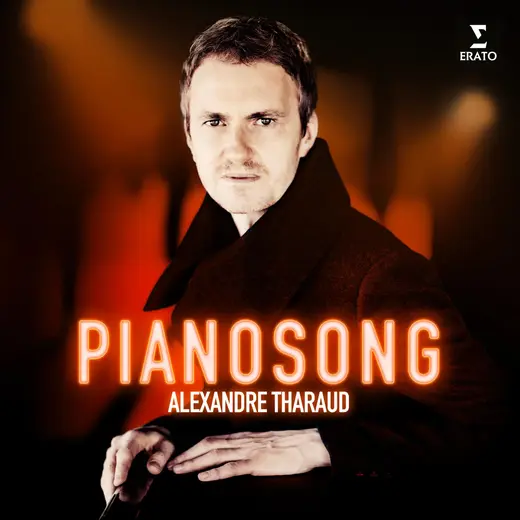
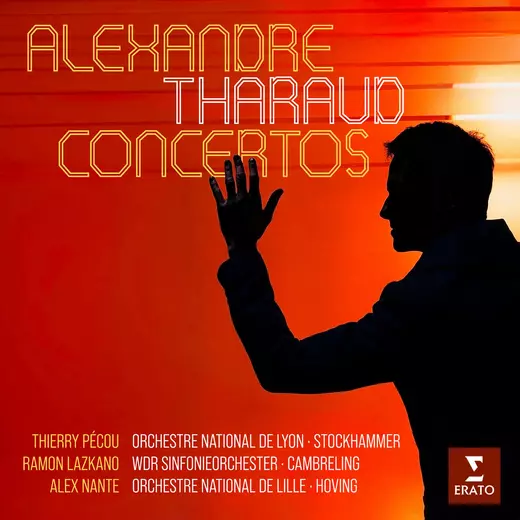
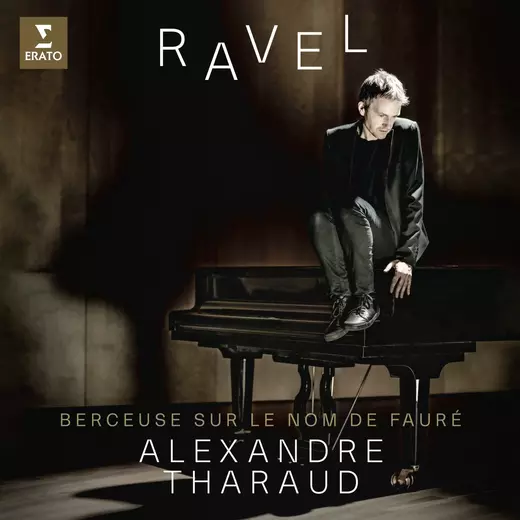
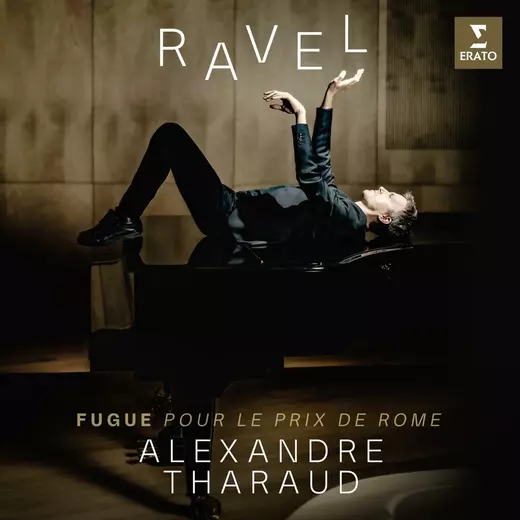
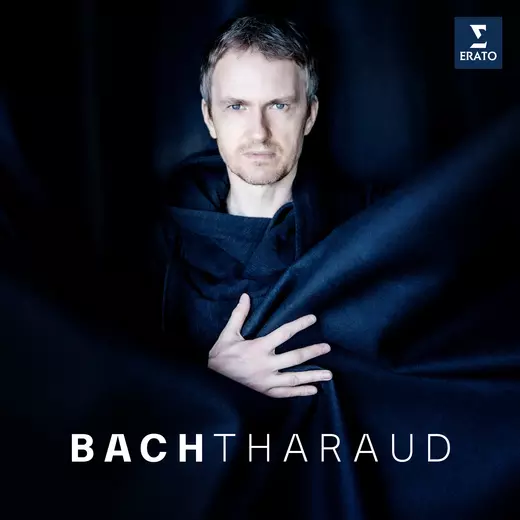
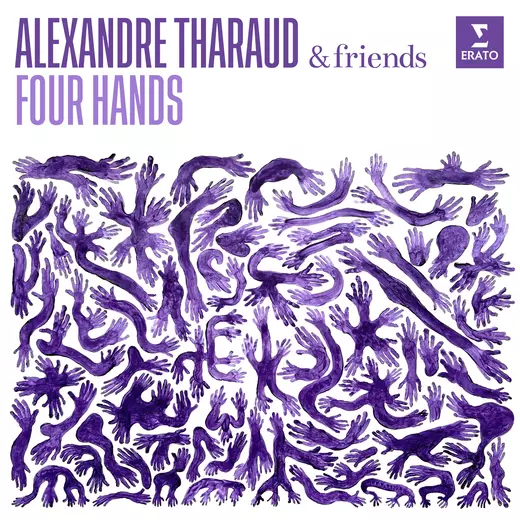
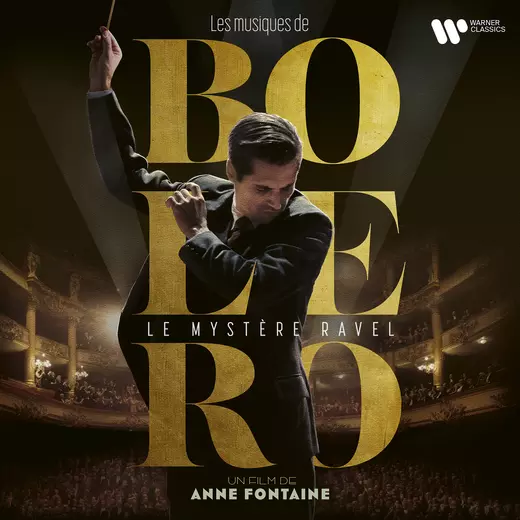
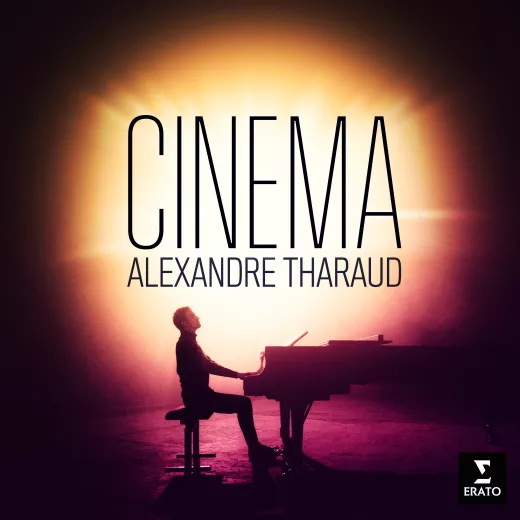
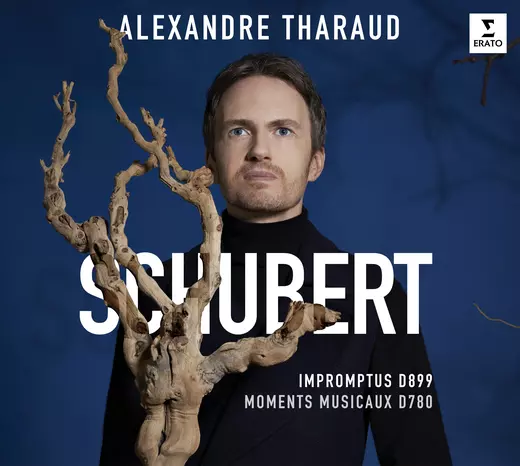
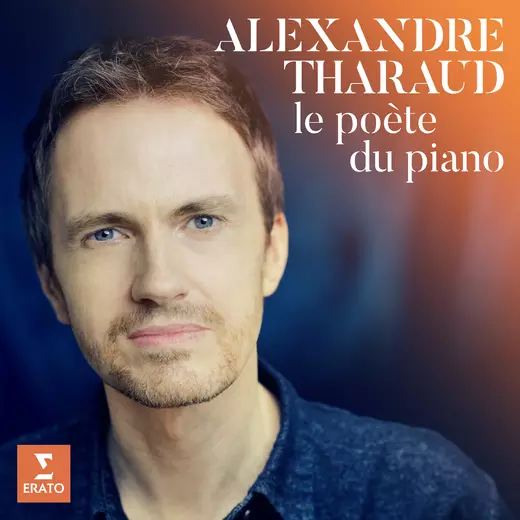
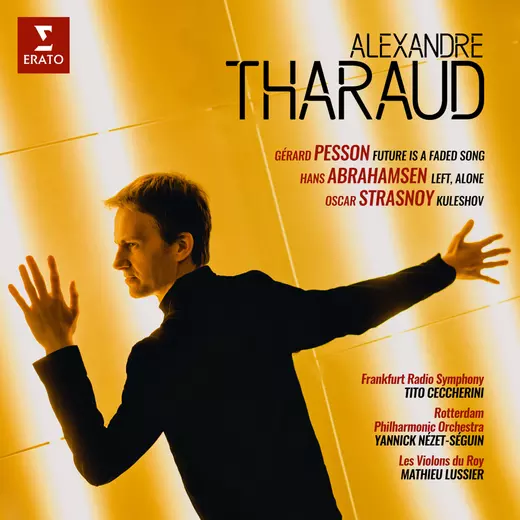
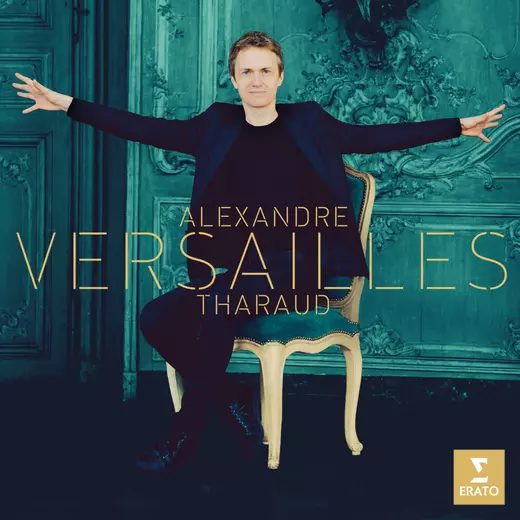
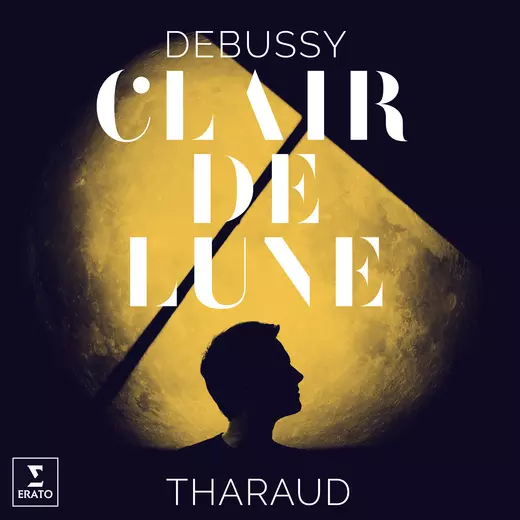
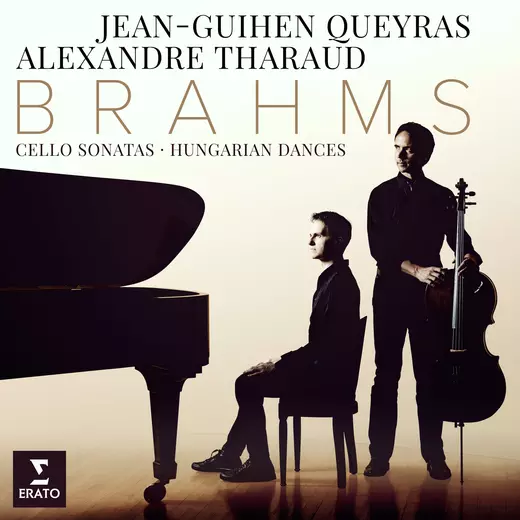
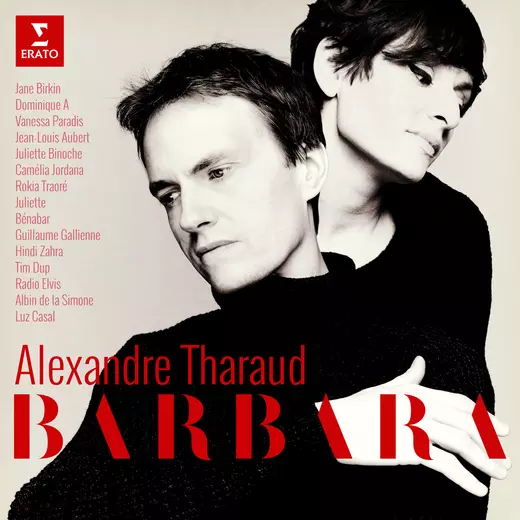
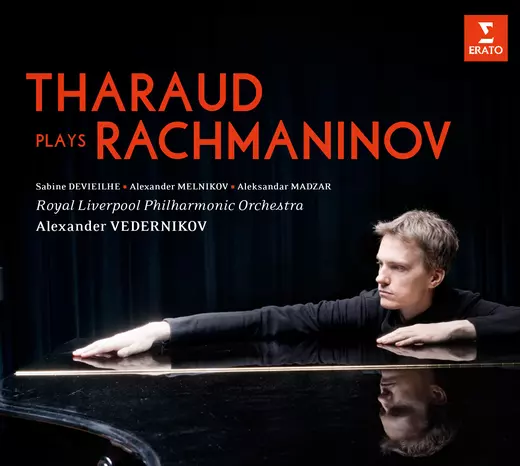
Upcoming Concerts
Friday
Monday
Wednesday
Thursday
Tuesday
